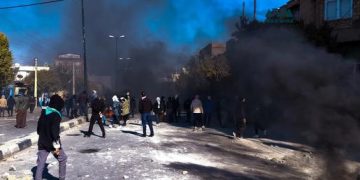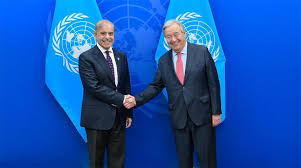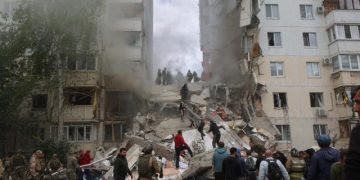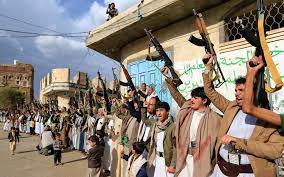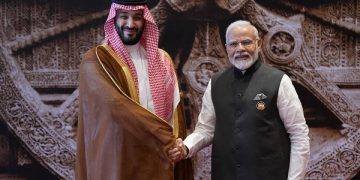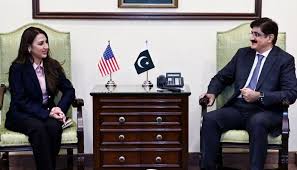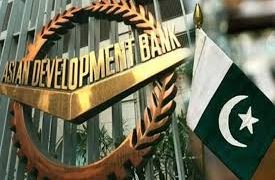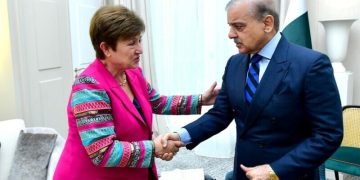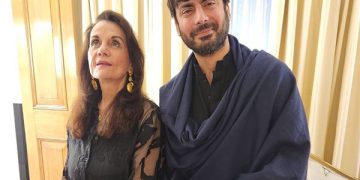The Afghan conflict has come to a point where there is a gruesome concern for the future it stores. The United States will leave by the end of August as announced in the deal brokered by Washington bringing the warring parties, the Taliban and Afghan government on a table in a move aimed to resolve infighting and thus seeking the Taliban to ensure that the Afghan soil not to be used against the US or its allies following their departure. The deal, known as the ‘Doha Agreement’ was brokered, last year in February—2020 under the presidency of former US President —Donald Trump, where US special representative to Afghanistan, Zalmay Khalilzad and former secretary Mike Pompeo played a pivotal part in the dialogue process.
The US could not have achieved its objective of smooth transition if Pakistan would not have provided a deep insight, forcing the Taliban to shelve violence and sit in peace with the US and Afghan government led by an apparently hostile president, Ashraf Ghani, who was snubbed by the Prime Minister Imran Khan when the former tried to insinuate Islamabad in playing a “negative role” while being responsible in exporting violence by backing Afghan Taliban in the international conference on “Central and South Asia Regional Connectivity: Challenges and Opportunities,” during Imran’s two-day visit to Uzbekistan, last week.
Pakistan officially never took sides over the prolonged conflict which has lasted for two decades but has always been accused of extending hands in support to the Afghan Taliban giving them strength and the needed impetus to fight the US and the Kabul Regime. In return, Pakistan refuted these allegations but always asserted to promote an “Afghan-owned, Afghan-led peace process,” as a way forward. In this case, the civil and military are purportedly to be on the same page, which at many times held strife against each other on many foreign policy debacles.
The incumbent Army Chief, General Qamar Javed Bajwa is seriously committed to increasing the pace of border-fencing in a bid to stop the free influx of Afghan refugees as Pakistan cannot afford to host more flood of refugees in the case the situation gets out of control in Afghanistan.
It is said that history is the best guide to dissect the current events and then form an opinion over any developments that take place. Writing an article while sitting remotely is easy because we base our information on what is being reported. In meanwhile, there may be a possibility that ground realities can be quite contrary. It seems true to admit that the US has failed miserably to crush the Afghan Taliban who have grown stronger in the recent years following the US invasion after 9/11.
The US held responsible the then Taliban government for providing safe sanctuaries to Al-Qaeda and its former slain leader, Osama Bin Laden; the mastermind in carrying out terror attacks on World Trade Center and on Pentagon. But over the passage of years, Al-Qaeda had lost its strength despite its shallow footprints in the middle east, it became a pretext for the successive US presidents to build a narrative that Al-Qaeda still posed a threat to their security. Over the years, the Islamic State (IS) emerged as a challenge for the world’s peace and for the already in turmoil plagued Islamic World.
The IS factor is a prevailing and matter of concern for the stakeholders inside and outside Afghanistan. Though the Taliban had reiterated on many occasions that if they are left with power, they would ensure that the IS does not get a stronghold. As per media reports, the same IS is responsible for carrying out various terror attacks targeting Hazara ethnicity, who are predominantly Shias.
So the question is; If Afghanistan is left with Taliban to rule over the war-torn country, does it guarantee the much awaited peace? In my opinion, the answer is a no. Like I said before, history is the best guide to come to any conclusion over any matter. In my assessment, how inept, fragile, corrupt and anti-Pakistan the Afghan government is, it does not render the Afghan Taliban the needed legitimacy to hold the reins of power. How much we argue and believe that the Afghan Taliban is a changed entity now does not warrant building narratives in their favour. Reports are pouring in that people queued outside the passport offices following the start of clashes between the Kabul regime and the Taliban.
It is next to impossible to believe that this reaction by the Afghan people is the stamp over the Taliban’s legitimacy! Who shall run to escape from the country where supposedly their government is coming into power. It’s a fact that the Afghan Government could not stand the aggression and war tactics shown by the Taliban, especially when the US forces have left the Bagram airbase. It is anticipated that at any point in time, the Taliban may occupy Kabul.
So from the optics, they look to be the upcoming rulers who will decide, once again the destiny of the impoverished country ravaged with loss of human lives on all counts. But hold on for a minute; The Taliban are primarily Pashtuns and according to demographic structures available online, the Afghan population consists of Pashtun, Hazaras, Tajiks and Uzbeks. A further ten other ethnic groups are recognized and each is represented in the Afghan National Anthem.
The key to resolving the Afghan conflict is inclusiveness in letter and spirit. Pakistan believes in Afghan-owned settlement, therefore all the stakeholders inside Afghanistan which includes; The Taliban, Kabul Regime and Northern Alliance to sit together and strive to build a national government. While supporting one faction over other will work as fuel to the fire and whosoever would take sides will leave the conflict to prolong having far, far repercussions for the region as a whole. Ashraf Ghani must realize blaming Pakistan will not bring any benefit to his feeble, incompetent government and for the Taliban, it is a time to introspect their way of governance which is the savagery of all sorts: Uncivilized and non-democratic.
The prime beneficiary of Afghan peace will be Pakistan and to make sure that there is a long-lasting peace in the region it should not allow the national media to build a perception in favour of the Afghan Taliban. Also, this hybrid government has to keep an eye on the rogue elements who still want to pursue the dream of making Afghanistan a strategic depth through using the Afghan Taliban. It shall be a great travesty of justice if we support the 90’’s era model for short terms goals.
For the time being, fingers are crossed as it is not a matter of years, months or weeks but of days to foresee what the future holds for Afghanistan.

